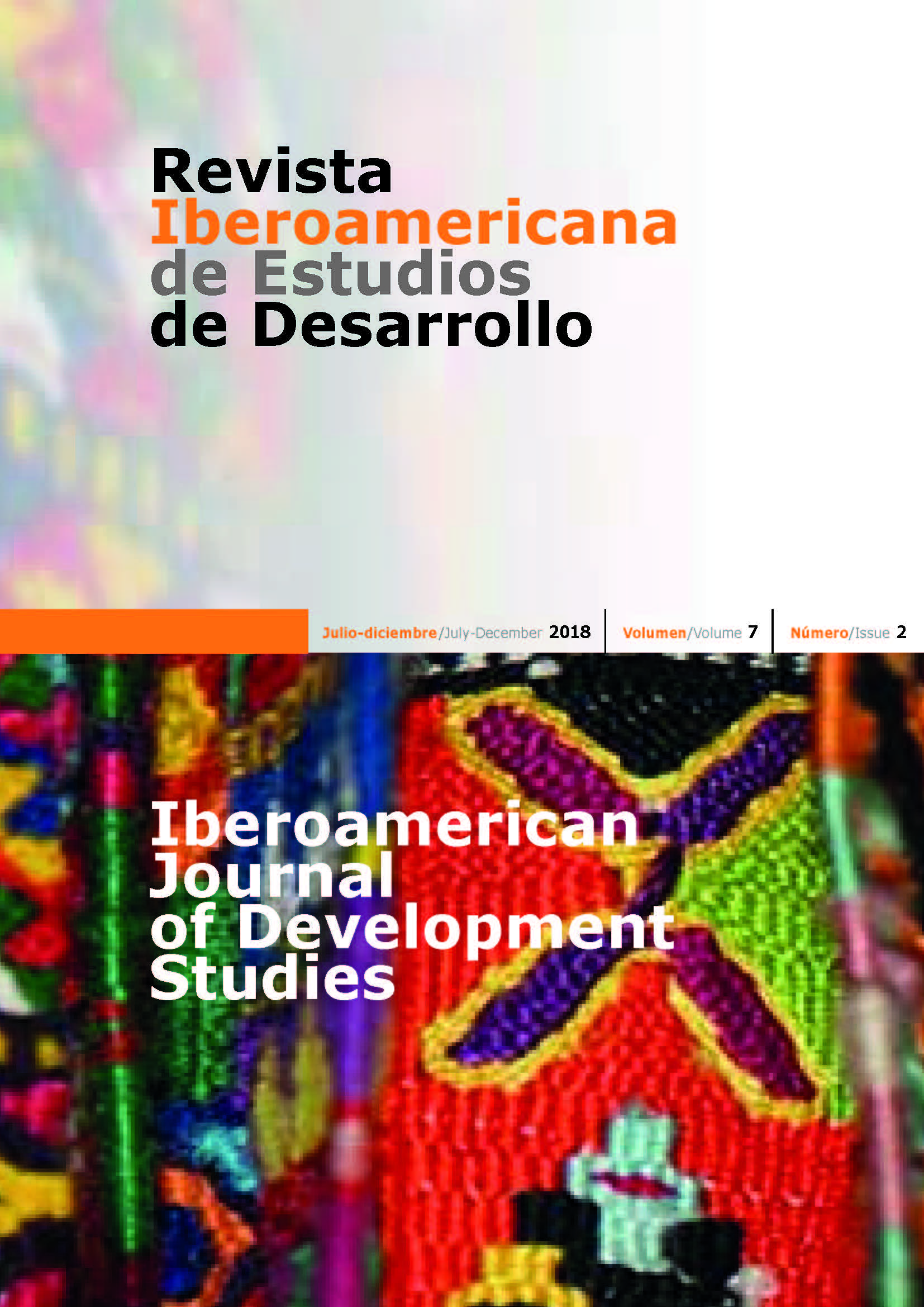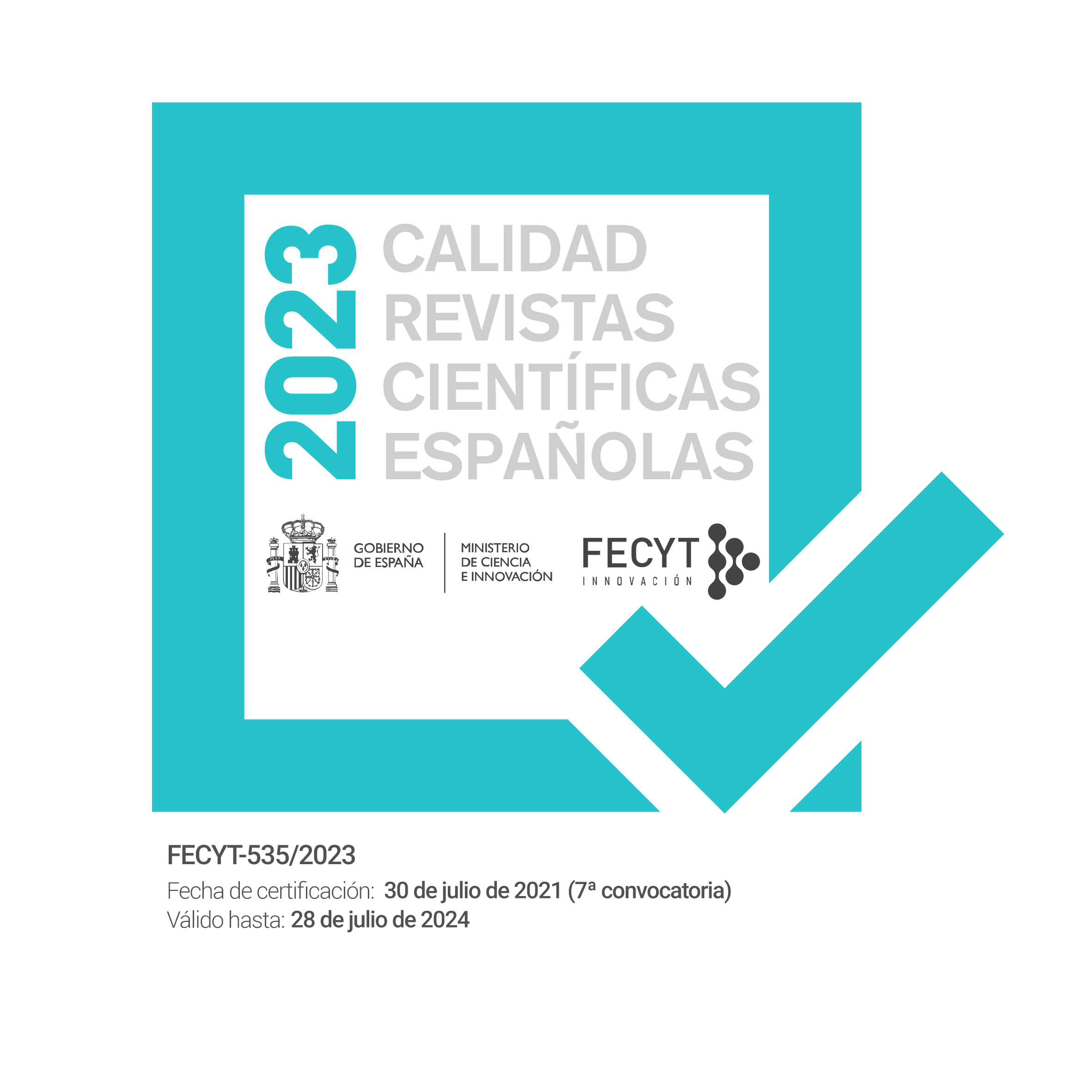Why Does Deliberative Community Consultation in Large-Scale Land Acquisitions Fail? A Critical Analysis of Mozambican Experiences
DOI:
https://doi.org/10.26754/ojs_ried/ijds.274Keywords:
consultation, deliberative democracy, large-scale land acquisition, land grabbing, land rights, MozambiqueAbstract
Community consultation prior to large-scale land acquisitions (LSLA) is a cornerstone that justifies the portrayal of projects as partnerships or land grabbing. This study focuses on one of the countries most targeted by LSLA in the last decade, namely, Mozambique. The theoretical framings and everyday practices within community consultations are critically examined. The article argues that although the existence of these participatory forums is inspired by normative ideals of popular deliberation, the prevailing practices in these spaces are diametrically opposed to the theoretical foundations and values associated with deliberative democracy. As shown in this study, this mismatch between theory and practice derives largely from the interplay of hierarchical relations anchored in, inter alia, formal and customary ethnically based realms, gender disparities, and livelihood orientations. A core argument of the article is that any attempt to ameliorate these practices must consider critical insights regarding strategies to enhance social equality and inclusion in participatory spaces – challenges which are immense in places marked by deep structural inequalities.
Downloads
References
AGARWAL B (2001). Participatory exclusions, community forestry, and gender: An analysis for South Asia and a conceptual framework. World Development 29(10):1623-1648.
ÅKESSON G, CALENGO A, TANNER C (2009). It’s not a question of doing or not doing it – It’s a question of how to do it. Study on community land rights in Niassa province, Mozambique. Urban and Rural Reports, Swedish University of Agricultural Sciences.
ANDREW M, VAN VLAENDEREN H (2011). Commercial biofuel land deals and environment and social impact assessments in Africa: Three case studies in Mozambique and Sierra Leone. Working Paper 1, The Land Deal Politics Initiative.
ANSOMS A, WAGEMAKERS I, WALKER MD, MURISON J (2014). Land contestation at the micro scale: Struggles for space in the African marshes. World Development 54:243-252.
BALEIRA S, BUQUINE E (2010). Estudo sobre conflito de interesses na gestão e exploração da terra em Moçambique: Os casos dos distritos de Massinga, Zavala, Macomia e Mecufi. Rural Association for Mutual Help.
BECHTEL P (2001). Land law and agricultural development in the Cabo Delgado province of Mozambique and in Swaziland. Paper presented at the SARPN conference on Land Reform and Poverty Alleviation in Southern Africa Pretoria (June 4-5).
BOHMAN J (2006). Deliberative democracy and the epistemic benefits of diversity. Episteme 3(3):175-191.
BORRAS SM, FRANCO J (2010). From threat to opportunity? Problems with the idea of a «code of conduct» for land-grabbing. Yale Human Rights and Development Journal 13(2):507-523.
BORRAS SM, FIG D, SUÁREZ SM (2011). The politics of agrofuels and mega-land and water deals: Insights from the ProCana case, Mozambique. Review of African Political Economy 38(138):215-234.
BORRAS SM, FRANCO J, WANG C (2013). The challenge of global governance of land grabbing: Changing international agricultural context and competing political views and strategies. Globalizations 10(1):161-179.
BOWEN ML (2000). The State against the Peasantry: Rural struggles in colonial and postcolonial Mozambique. University Press of Virginia, London.
CANHANGA NJV (2009). Os desafios da descentralização e a dinâmica da planificação participatva na configuração de agendas políticas locais. In: Brito L, Castel-Branco C, Chichava S, Francisco A (org.). Cidadania e Governação em Moçambique. IESE, Maputo, pp. 90-117.
CFS (2014). Principles for responsible investment in agriculture and food systems. http://www.fao.org/cfs/cfs-home/activities/rai/en/, accessed 20 June 2017.
COHEN J, FUNG A (2004). Radical Democracy. Swiss Journal of Political Science 10(4):23-34.
COTULA L (2011). Land Deals in Africa: What is in the contracts? IIED, London.
DEININGER K (2011). Challenges posed by the new wave of farmland investment. The Journal of Peasant Studies (38)2:217-247.
DEININGER K, BYERLEE D (2011). Rising global interest in farmland: Can it yield sustainable and equitable benefits? The World Bank.
DRYZEK JS (2010). Foundations and Frontiers of Deliberative Governance. Oxford University Press, Oxford.
ECKERSLEY R (2000). Deliberative democracy, ecological representation, and risk: Towards a democracy of the affected. In: Saward M (ed.). Democratic Innovation: Deliberation, association, and representation. Routledge, London, pp. 117-32.
ESTERLING KM, FUNG A, LEE T (2015). How much disagreement is good for democratic deliberation? Political Communication 32(4):529-551.
FAIRBAIRN M (2013). Indirect dispossession: Domestic power imbalances and foreign access to land in Mozambique. Development and Change 44(2):335-356.
FAO (2012). Voluntary guidelines on the responsible governance of tenure of land, fisheries and forests in the context of national food security. http://www.fao.org/nr/tenure/voluntary-guidelines/en/, accessed 20 June 2017.
FAO (2016). Country fact sheet on food and agriculture policy trends. http://www.fao.org/3/a-i5931e.pdf , accessed 29 March 2017.
FAO, IFAD, UNCTAD, World Bank (2009). Principles for responsible agricultural investment that respects rights, livelihoods and resources. http://documents.worldbank.org/curated/en/748861468194955010/Principles-for-responsible-agricultural-investment-that-respects-rights-livelihoods-and-resources-extended-version, accessed 20 June 2017.
FIAN (2010). Stop Land Grabbing Now! http://www.fian.org/library/publication/stop_land_grabbing_now/ , accessed 12 June 2017.
GAMBETTA D (1998). «Claro!»: An essay on discursive machismo. In: Elster J (ed.). Deliberative Democracy. Cambridge University Press, Cambridge, pp. 19-43.
GASTIL J, DILLARD JP (1999). Increasing political sophistication through public deliberation. Political Communication 16(1):3-23.
GERMAN L, CAVANE E, SITOE A, BRAGA C (2015). Private investment as an engine of rural development: A confrontation of theory and practice for the case of Mozambique. Land Use Policy 52:1-14.
GRAIN (2008). Seized: The 2008 landgrab for food and financial security.
GUDYNAS E (2015). Extractivismos: Ecología, economía y política de un modo de entender el desarrollo y la naturaleza. Centro de Documentación e Información Bolivia.
HANLON J (2002). The land debate in Mozambique: Will foreign investors, the urban elite, advanced peasants or family farmers drive rural development? Research Paper, Oxfam GB.
HANLON J (2004). Renewed land debate and the «cargo cult» in Mozambique. Journal of Southern African Studies 30(3):603-626.
HANLON J (2011). Mozambique political process bulletin 28, Center for Public Integrity and European Parliamentarians with Africa. http://www.open.ac.uk/technology/mozambique/sites/www.open.ac.uk.technology.mozambique/files/pics/d128132.pdf, accessed 29 March 2017.
ILO (1989). Indigenous and Tribal Peoples Convention (No. 169).
KARPOWITZ CF, RAPHAEL C, HAMMOND AS (2009). Deliberative democracy and inequality: Two cheers for enclave deliberation among the disempowered. Politics & Society 37(4):576-615.
KLOECK-JENSON S (2000). Locating the community: Administration of natural resources in Mozambique. Working Paper 32, Land Tenure Center of the University of Wisconsin-Madison.
KNIGHT RS (2010). Statutory recognition of customary land rights in Africa: An investigation into best practices for lawmaking and implementation. Legislative study 105, FAO.
LALANDER R (2016). Gendering popular participation: Identity-Politics and radical democracy in Boliviarian Venezuela. In: Korppisari A, Kettunen H (eds.). Multidisciplinary Latin American Studies: Festschrift in honor of Martti Pärssinen. University of Helsinki (Department of World Cultures), Helsinki, pp. 149-174.
LANDEMORE L (2014). Yes, we can (make it up on volume): Answers to critics. Critical Review 26(1-2):184-237.
LEIFSEN E, SÁNCHEZ-VÁZQUEZ L, REYES MG (2017). Claiming prior consultation, monitoring environmental impact: Counterwork by the use of formal instruments of participatory governance in Ecuador’s emerging mining sector. Third World Quarterly 38(5):1092-1109.
LI TM (2011). Centering labor in the land grab debate. The Journal of Peasant Studies 38(2):281-298.
MANIN B, STEIN E, MANSBRIDGE J (1987). On legitimacy and political deliberation. Political Theory 15(3):338-368.
MATAVEL N, DOLORES S, CABANELAS V (2011). Lords of the land: Preliminary analysis of the phenomenon of land grabbing in Mozambique. Justiça Ambiental and National Farmer’s Union.
MILGROOM J (2015). Policy processes of a land grab: At the interface of politics «in the air» and politics «on the ground» in Massingir, Mozambique. The Journal of Peasant Studies 42(3-4):585-606.
MONDLANE D (2011). Portucel mantém interesse de investir em Moçambique. A Verdade February 9. http://www.verdade.co.mz/arquivo/17301-portucel-mantem-interesse-de-investir-em-mocambique, accessed 29 March 2017.
MOZAMBICAN REPUBLIC (1995). National Policy on Land. Resolution 10/95 of October 17.
MOZAMBICAN REPUBLIC (1997). Mozambique’s Land Law. Law 19/97 of October 1.
MOZAMBICAN REPUBLIC (1998). Regulation of the Land Law. Decree 66/98 of December 8.
MOZAMBICAN REPUBLIC (2000). Technical Annex to the Regulation of the Land Law. Ministerial Diploma 29-A/2000 of March 17.
MOZAMBICAN REPUBLIC (2004). Constitution of the Republic.
MOZAMBICAN REPUBLIC (2007). Law of Territorial Planning. Law 19/2007 of July 18.
MOZAMBICAN REPUBLIC (2008). Regulation of the Law of Territorial Planning. Decree 23/2008 of July 1.
MOZAMBICAN REPUBLIC (2010a). Alteration to the Regulation of the Land Law. Decree 43/2010 of October 29.
MOZAMBICAN REPUBLIC (2010b). Directive of Expropriation due to Territorial Planning. Ministerial Diploma 181/2010 of November 3.
MOZAMBICAN REPUBLIC (2011). Complementation to the Regulation of the Land Law. Ministerial Diploma 158/2011 of June 15.
MOZAMBICAN REPUBLIC (2012). Regulation of Relocation Process due to Economic Activities. Decree 31/2012 of August 8.
MOZAMBICAN REPUBLIC (2014). Technical Directive to the Process of Elaboration of Resettlement Plans. Ministerial Diploma 156/2014 of September 19.
NORFOLK S, TANNER C (2007). Improving tenure security for the rural poor, Mozambique. Legal Empowerment of the Poor Working Paper 5, FAO.
OTSUKI K, ACHÁ D, WIJNHOUD JD (2017). After the consent: Re-imagining participatory land governance in Massingir, Mozambique. Geoforum 83:153-163.
PARKINSON J (2006). Deliberating in the Real World: Problems of legitimacy in deliberative democracy. Oxford University Press, Oxford.
PETERS PE (2013). Land appropriation, surplus people and a battle over visions of agrarian futures in Africa. The Journal of Peasant Studies 40(3):537-562.
PORSANI J, CARETTA MA, LEHTILÄ K (2018). Large-scale land acquisitions aggravate the feminization of poverty: Findings from a case study in Mozambique. GeoJournal. https://doi.org/10.1007/s10708-017-9836-1
PORSANI J, BÖRJESON L, LEHTILÄ K (2017). Land concessions and rural livelihoods in Mozambique: The gap between anticipated and real benefits of Chinese investment in the Limpopo Valley. Journal of Southern African Studies 43(6): in press.
PRZEWORSKI A (1998). Deliberation and ideological domination. In: Elster J (ed.). Deliberative Democracy. Cambridge University Press, New York, pp. 140-160.
ROESCH O (1991). Migrant labour and forced rice production in southern Mozambique: The colonial peasantry of the Lower Limpopo valley. Journal of Southern African Studies 17(2):239-270.
SANDERS LM (1997). Against deliberation. Political Theory 25(3):347-376.
SASS D, DRYZEK JD (2014). Deliberative cultures. Political Theory 42(1):3-25.
SUNSTEIN CR (2002). The law of group polarization. The Journal of Political Philosophy 10(2):175-195.
TANKAR I (2014). Guião de consultas comunitárias. Centro Terra Viva. http://www.ctv.org.mz/publicacao/Guiao%20de%20Consultas%20Comunitarias.pdf, accessed 29 March 2017.
TANNER C, BALEIRA S (2006). Mozambique’s legal framework for access to natural resources: The impact of new legal rights and community consultations on local livelihoods. Livelihood Support Programme (LSP) Working Paper 28, FAO.
THE LAND MATRIX GLOBAL OBSERVATORY (2007). http://www.landmatrix.org/en/get-the-detail/by-target-country/mozambique/?order_by=&starts_with=M , accessed 29 March 2017.
UN GENERAL ASSEMBLY (1948). Universal Declaration of Human Rights (217 [III] A).
UN GENERAL ASSEMBLY (2007). United Nations Declaration on the Rights of Indigenous Peoples (61/295).
VIJFHUIZEN C (2001). Perdendo o control: Género e terra no regadio de Massaca, província de Maputo. In: Waterhouse R, Vijfhuizen C (eds.). Estratégias das Mulheres, Proveito dos Homens: Género, terra e recursos naturais em diferentes contextos rurais em Moçambique. Eduardo Mondlane University and ActionAid-Moc̦ambique, Maputo, pp. 89-121.
VIJFHUIZEN C, WATERHOUSE R (2001). Conclusão. In: Waterhouse R, Vijfhuizen C (eds.). Estratégias das Mulheres, Proveito dos Homens: Género, terra e recursos naturais em fiferentes contextos rurais em Moçambique. Eduardo Mondlane University and ActionAid-Moc̦ambique, Maputo, pp. 265-283.
VON BRAUN J, MEINZEN-DICK R (2009). Land grabbing by foreign investors in developing countries: Risks and opportunities. International Food Policy Research Institute Policy Brief 13.
WATERHOUSE R, LAURICIANO G, NORFOLK S (2010). Social analysis of selected projects: Large-scale land acquisition for agricultural production, Mozambique. Background study for the World Bank.
WEST HG, KLOECK-JENSON S (1999). Betwixt and between: «Traditional authority» and democratic decentralization in post-war Mozambique. African Affairs 98(393):455-484.
WILY LA (2011). «The law is to blame»: The vulnerable status of common property rights in Sub-Saharan Africa. Development and Change 42(3):733-757.
WRAGHAM R (2004). Negotiating meaning and practice in the Zambézia Agricultural Development Project, Mozambique. Doctoral Thesis, London School of Economics and Political Science.
YOUNG IM (2001). Activist challenges to deliberative democracy. Political Theory 29(5):670-690.
ZOOMERS A (2010). Globalisation and the foreignisation of space: Seven processes driving the current global land grab. The Journal of Peasant Studies 37(2):429-447.
Downloads
Published
How to Cite
Issue
Section
License
Copyright (c) 2018 Juliana Porsani, Rickard Lalander

This work is licensed under a Creative Commons Attribution-NonCommercial-NoDerivatives 4.0 International License.








